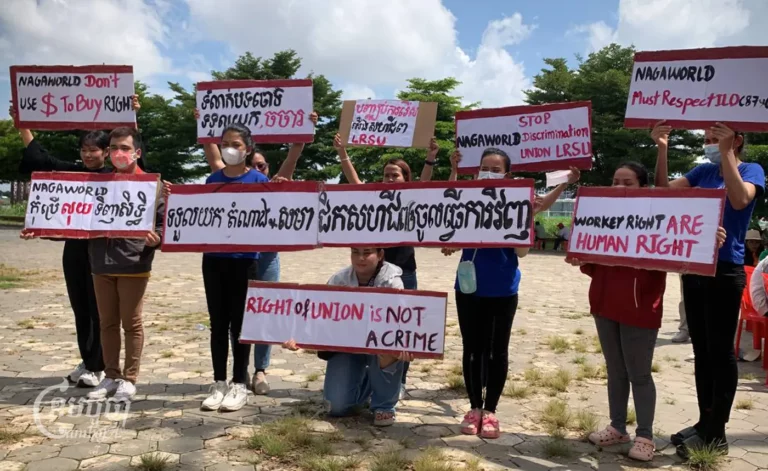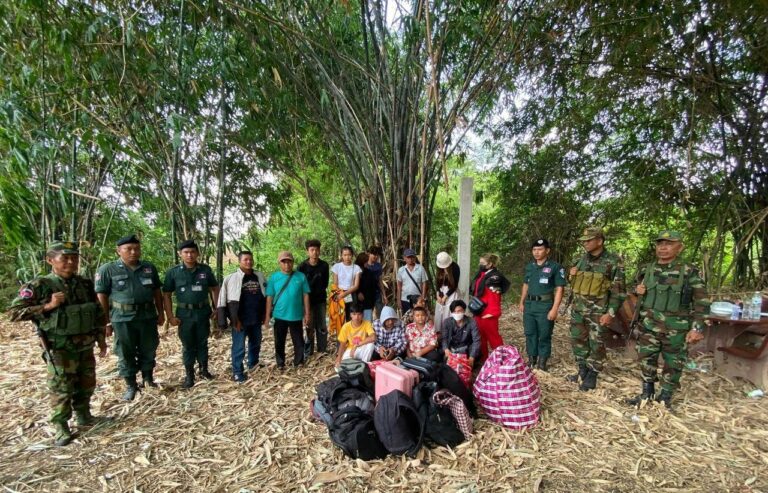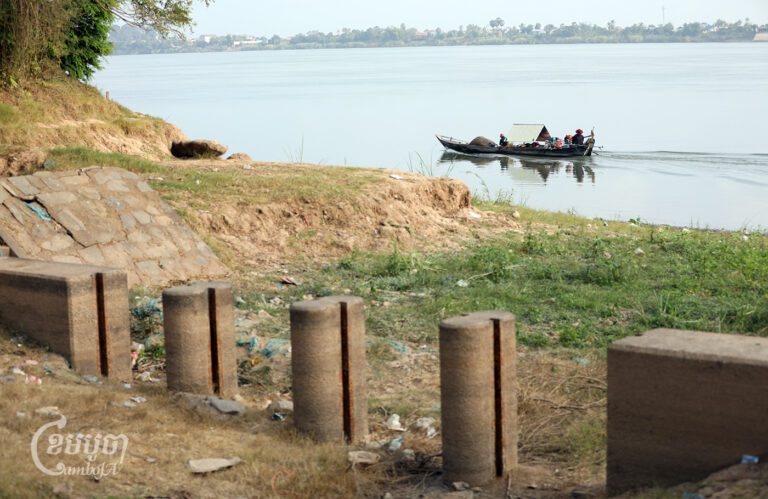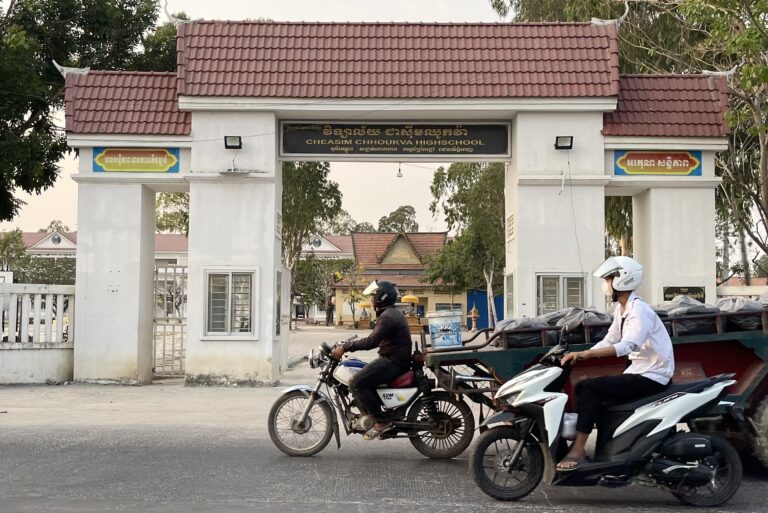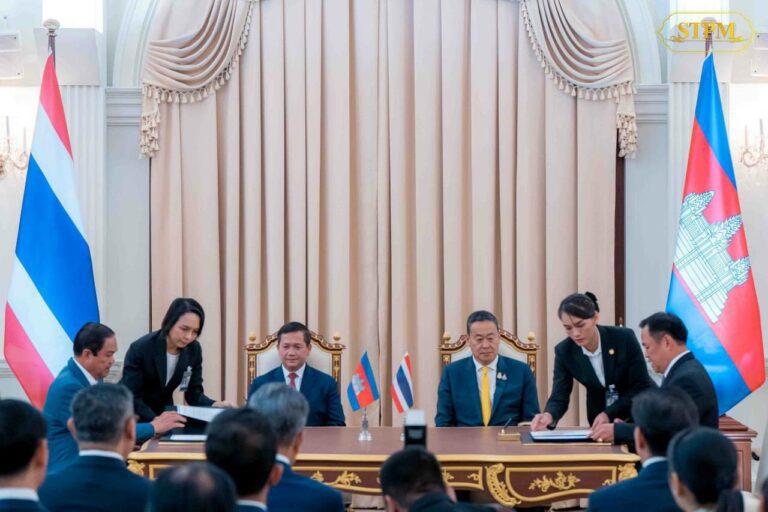Cambodia’s corruption index on Transparency International 2023 has worsened, falling two points from last year, according to Transparency International Cambodia (TIC).
The Corruption Perceptions Index (CPI), released on Tuesday, showed Cambodia emerging 22 out of 100, down from 24 last year, which puts it at the second last spot among Asean countries behind Myanmar. Cambodia was also ranked 158 out of 180 countries and territories globally, compared to its 2022 score of 150.
Pech Pisey, executive director of TIC, said Cambodia’s score is a sign that its fight against corruption is “stagnating” and a “stark reminder of the pervasive corruption challenges” it continues to face across various sectors.
He noted that while there have been instances of progress in areas such as resource mobilization and local services, expert opinions “clearly point to the persistence of grand and political corruption”. It is where “crucial reforms aimed at strengthening the rule of law and justice have stalled.”
In the Asia Pacific region, Cambodia holds the fourth-lowest position, ahead of only Afghanistan, Myanmar, and North Korea. Singapore was ranked among the top five countries with least perceived corruption worldwide.
Scores dipped for Vietnam from 42 to 41, Thailand (36 to 35), Laos (31 to 28) and Myanmar (23 to 20). Conversely, Malaysia rose from 47 to 50 and the Philippines (33 to 34). Singapore and Indonesia maintained their scores at 83 and 34, respectively.
At the launch of the CPI on Tuesday, Pisey said Cambodia continues to restrict fundamental rights, including freedom of expression, while corruption in the judicial system exists. The media and civil society organizations still experience challenges in exercising their duty in a democratic country, which is one of the reasons behind the deterioration of the score.
There is also a gap between law enforcement and existing legal frameworks, he pointed out, noting that it is crucial for a country to have a proper rule of law, effective enforcement and continuous efforts to combat corruption.
“It’s fair to say that Cambodia remains one of the most corrupt countries in Asean and the world,” he remarked.
Pisey said one of the key issues to address is the rule of law and the effectiveness of the existing legal and regulations framework.
To be sure, the Kingdom does have an anti-corruption law. But TIC’s study suggests that some of the legal frameworks and articles in the existing law be reviewed. Pisey said the review is important to ensure that it meets international standards and is in line with the UN’s anti-corruption policy guide.
“Cambodia has enough legal frameworks that we can enforce to ensure rule of law, although there are some key regulations that need to be adapted or amended,” he said. Nevertheless, one can fairly say that Cambodia has “good legal frameworks to be enforced to ensure that we can run a democratic country and be accountable.”
If indicators such as the economic environment, the check and balance of democracy, and justice and media, can be addressed, Cambodia could grow and develop, he said.
The TIC study uses seven key data sources to support the CPI findings, which include economic figures, democracy, world justice and the World Bank.

The global organization urged the government to amplify and expedite its reform in eradicating corruption, and for concrete measures to be implemented. These include punishing all forms of corruption, empowering accountability and oversight, modernizing anti-corruption legal frameworks, promoting transparency and public scrutiny, and leveling the playing field for businesses.
As for accountability, Pisey mentioned that “one institution alone” cannot be in charge of it. This requires the contribution of key sectors and institutions, such as legislative bodies, the anti-corruption unit, audit authority, judiciary, media and civil society.
“If the government opens the space for civil society to engage and for the media to operate independently, it [would be] good in addressing fundamental corruption in Cambodia,” he said.
Huy Vannak, Secretary of State of the Council of Ministers who attended the CPI launch for the government, said corruption is “something that all relevant parties need to find out more about”.
“For us [the government], [we] never accept or reject the report, but we need to interpret the number [CPI score] against the scale of corruption between Cambodia and the world,” he said.
He opined that the “superpower with a big gross domestic product has bigger corruption compared to Cambodia”, though he failed to disclose which country he meant by that.
“Don’t make us feel like we are victims of the word corruption. It is not about numbers, it should be about the scale,” Vannak said. “We acknowledge that corruption is not good [as] it brings the whole system down. We have to acknowledge that some reports become a stigma that prevents one country from developing.”
Sar Senera, representative of the Council for the Development of Cambodia (CDC), echoed Vannak, saying that he does not reject the report but just thinks that it gives Cambodia a bad image.
“I am not here to say yes or no to the findings,” said Senera at the launch. “From the CDC’s perspective, I wish to share that the findings by TIC should not be politicized in order to victimize our country and the government’s effort as a whole.”
The report should be perceived as a knowledge-sharing document because the CPI refers to the corruption perspective index, which he claimed is not about fact-finding a particular sector.
“It [the findings] is [based on] the perception of those interviewed,” Senera observed.
He said the Pentagonal strategy has established methods to combat corruption and improve people’s livelihoods rather than attempt to achieve high scores based on the CPI. This was a more meaningful way to solve corruption, he added. “It’s not about getting high scores to show off but it is [about] the quality of life for people [which is] by improving our economy.”
Responding to Senera, Pisey agreed that it was the institution and individuals’ right to reject or review the CPI. However, in the interest of particular institutions, the people and nation, he thought that it would be encouraging for the government to review the findings.
“It is up to the individual’s rights and we respect their decision. But the result is there. The number does not lie,” he stressed, while reminding that the data is relied upon by credible institutions to make investment decisions as it is indicative of the scale of corruption in a country.
“So, it is up to governments to make a decision and find a solution to address [the problem],” Pisey commented.
Justice Ministry spokesperson Chin Malin and Om Yentieng, chairman of the Anti-Corruption Unit, did not respond.




